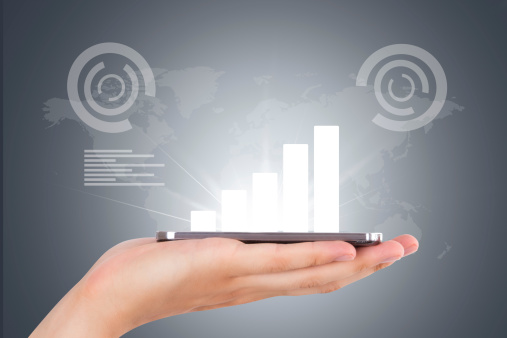
In the past advertising and marketing was pretty straight forward. Girls like pink and boys like blue. Women belonged in an apron and men in the garage. Furthermore, the power was in the hands of businesses rather than those of the consumers. Thankfully, the cultural and digital revolution changed everything we once knew about advertising.
In today’s world, the consumer has all the power. We do what we want, when we want. We can skip commercials, opt out of advertising and navigate our own way through our buyer’s journey. In short, we can outright refuse to be marketed to.
To those of us whose job it is to market product, this may seem like a bad thing. In actuality, this is the most liberating time us marketers have ever experienced. Rather than throwing spaghetti at the wall, vast amounts of data have empowered our ability to make decisions. By utilizing this data with technologies like Hadoop, marketing efforts are more precise and efficient than ever.
Let’s go through just a few ways that big data has enhanced marketing optimization and the marketing industry as a whole:
Lead Scoring
Lead scoring uses predictive modeling to improve marketing effectiveness. Based on a set of criteria, lead scoring models determine a lead’s ripeness for conversion. With the growth of the digital age, consumers are providing incredible amounts of personal and professional data that makes lead scoring so accurate. Lead scoring functions on three different types of data:
Explicit - This is data about the consumer. Examples are company size, job title, location, industry, etc.
Implicit - Implicit data is about the consumer’s activity. This can be their activity on your website, the types of content they participate in, email open rate, etc.
Social - Social networking is frequently intermingled with onsite activity. Data on the consumer’s social activity is also considered in their lead score.
Lead scoring accuracy depends on the availability of large quantities of data. Once your business has established itself with a sustainable level of leads, lead scoring may be a powerful tool in your marketing kit.
Persona Research
The cultural revolution has opened up niches of interest that have never been available before. Instead of dooming ourselves to predestined stereotypes, all of us have become entitled to embrace unique identities. This mighty shift in culture has made life more fulfilling for the average consumer. It has also made life a little more challenging for the average marketer.Long gone are the days of identifying the target audience exclusively by age, gender and income. Today, the most effective of marketers build complete buyer personas. Buyer personas use data on much more than just demographics. The consumer’s beliefs, attitudes, opinions, values and personality all play a role in how we market to them. The cultural language and jargon is also evaluated. The places the consumer frequents, their research and buying patterns, how they navigate the web; it all comes together to create a complete picture of who the buyer is.
When we know our customer at this deep of a level, it becomes much easier to identify a marketing message that resonates with them. Our customers are so unique and using big data has become a helpful partner in peeling back the onion on who they really are.
Measuring Marketing Effectiveness
The addition of digital access has generated an influx of available marketing mediums. This high variety in marketing channels is great when locating the eyes of your target buyer. To ensure marketing effectiveness, you want access to data and a lot of it.
In the past, the only data marketing channel owners could really provide was a basic number of visitors. Today, big data tools provide far greater detail into a marketing effectiveness. Let’s look at just a couple examples.
Video - There is so much more to know than just how many visitors will come in contact with a video. Using big data, data analysis can show how long a user watched the video. It can show heatmaps of where the user’s attention was during the duration of the video.
Display Advertising - Detailed analytics reports can quickly decipher the value of display advertising. Built-in algorithms help identify which campaigns are profitable and which are siphoning money in the long run.
Ultimately, without measurability in your marketing, effectiveness is impossible to determine. Data quantifies marketing effectiveness by opening up measurability far beyond what was once available.
Creating Customer Relationships
The most effective form of marketing is building customer relationships. The “one and done” buyer is expensive to acquire and offers little value to the company. Instead, the development of a relationship creates trust and a platform for mutual value exchanges.
By using big data, we can better identify what our buyers expect from us. Of course the end goal for us is to earn their business. To be worthy of their patronage, however, we need to be constantly providing for their needs as well. This can come in the form of information, connection, self-fulfillment etc.
Data analytics and digital connectivity are the bridge between us and them. By knowing their needs we can create entire communities around what matters most to them.
Conclusion
Marketing has always been a science more of wisdom than intellect. We are charged with understanding our buyers better than they understand themselves. Big data is just another tool in the hands of a master marketer.


